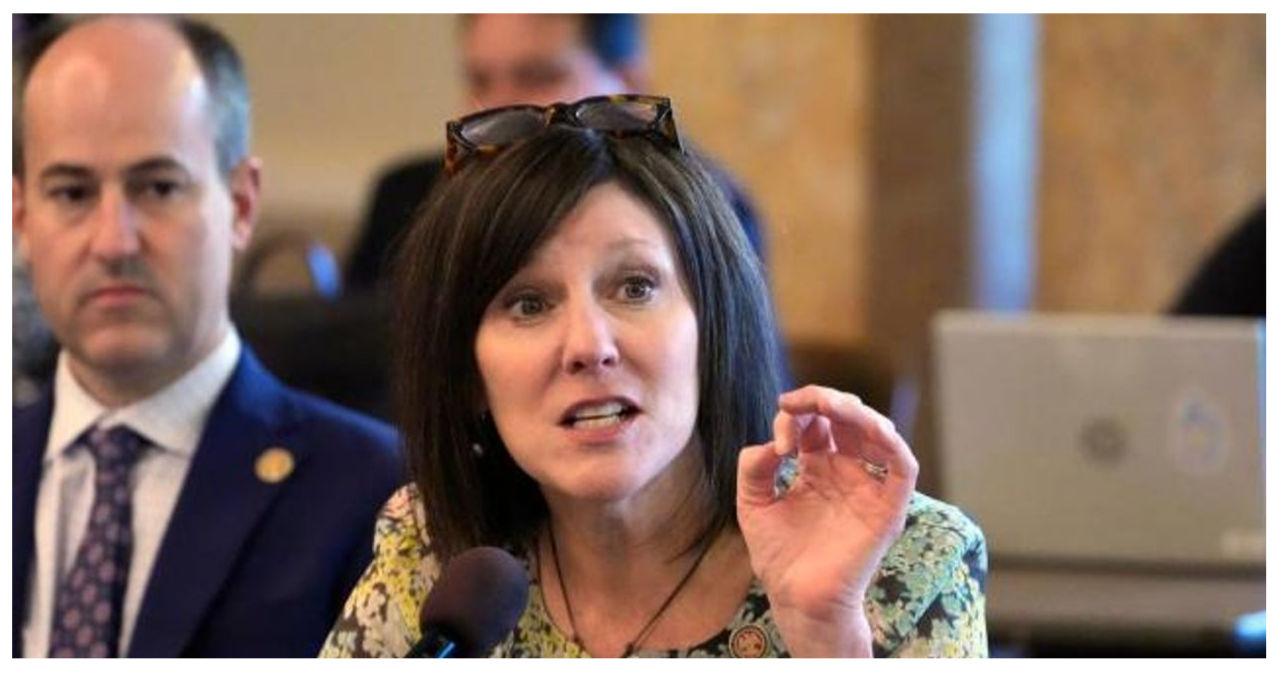In early March, Republican Gov. Tate Reeves held a meeting with a group of state senators at the Governor’s Mansion. During the meeting, he privately informed them that he would veto any Medicaid expansion bill that lawmakers pass, according to two senators who spoke to Mississippi Today.
Reeves extended an invitation to a group of approximately 15 senators to join him at the Governor’s Mansion for a social gathering. This is a customary practice when the Legislature is in session and comes at a crucial moment for the Senate, which is currently under GOP control.
According to many Capitol observers, Reeves’ legislative team has been actively lobbying the Senate to oppose Medicaid expansion.
The fate of Medicaid expansion now lies in the hands of the Senate, as they face looming deadlines. On February 28, the House took a significant step forward by passing an expansion proposal. This marks a pivotal moment for the state, as it is the first substantial progress made on expansion since the enactment of the Affordable Care Act.
Reeves’ staff did not respond to a request for comment regarding the event or his remarks, despite his longstanding opposition to expansion.
In recent weeks, Reeves has been using social media to once again express his strong opposition to expansion. On March 8, he took to X (formerly known as Twitter) to emphasize that President Joe Biden, in his State of the Union speech, voiced his support for the Affordable Care Act and Medicaid expansion.
Mississippi Governor Reeves expressed his concern about the country’s financial state and criticized the idea of adding more people to the welfare system. He emphasized the need to stand firm against the Medicaid expansion proposed under Obamacare.
Expanding Medicaid has been proven by numerous studies to be a viable solution for providing health care coverage to at least 200,000 Mississippians. Additionally, this expansion would result in the state receiving up to $1.6 billion in additional federal funds per year.
The House, which has a Republican majority, recently approved a bill with a strong majority vote to increase Medicaid eligibility. Under this bill, individuals with an annual income of about $20,000, which is 138% of the federal poverty level, would be eligible for Medicaid. This expansion would primarily benefit the working poor, as well as individuals who are unable to work due to disability or other exceptional circumstances. It would also provide coverage for a small number of unemployed individuals and those who do not qualify for exemptions.
The House bill includes a provision that requires recipients of Medicaid expansion to meet work requirements. However, it also guarantees that the expansion will still be implemented even if the federal government does not approve the work requirement.
The House bill, which garnered a veto-proof majority, is currently awaiting consideration in the Senate. Republican leaders in the Senate have been working on a version of Medicaid expansion, although they have yet to disclose the specifics of their proposal. With deadlines looming, the public remains in the dark about the Senate’s plan.
The cost for those covered by Medicaid expansion is predominantly covered by the federal government, with a 90% contribution, which increases to 95% for the first two years. Aside from extending health coverage to impoverished individuals in Mississippi who require it, research indicates that Medicaid expansion would greatly benefit the state’s economy. Initially, there is an estimated absence of expenses for the state over the course of four years, thanks to an additional $600 million in federal funds provided as an incentive to encourage Medicaid expansion.
Medical and business leaders in Mississippi have expressed their support for the plan, as they believe that expanding the program has the potential to improve health outcomes and decrease the burden of uncompensated care that hospitals frequently have to absorb.
Republican House Speaker Jason White, speaking at a press conference on February 28th after the House successfully passed its expansion plan, commended the House vote. However, he acknowledged that Governor Reeves, as the duly elected governor of Mississippi and recently reelected to a second term, also deserves the opportunity to express his views on Medicaid expansion.
During the press conference, White expressed his support for Gov. Reeves, emphasizing that one can simultaneously support the governor and advocate for a viable healthcare solution for the Mississippians who are currently without coverage.
The Senate, which is currently controlled by Republicans, has not yet approved a bill for Medicaid expansion. They are under pressure to meet a deadline on Thursday, where they will need to present a bill that includes Medicaid code sections, but without any concrete plans for expansion.
Senate Medicaid Chairman Kevin Blackwell, a Republican from Southaven, chose not to provide any comments on the governor’s remarks on Tuesday. In an interview with Mississippi Today on Monday evening, he stated that he had little to no information regarding the progress of the 52-member Senate in passing an expansion bill.
Blackwell has several options before the Thursday deadline. He could try to pass the dummy bill on the floor, amend it with a substantive Medicaid expansion plan, or simply let the Senate bill die. Even if the Senate dummy bill doesn’t succeed on Thursday, the House expansion plan will still be available for Senate consideration or amendments.
Meanwhile, Blackwell remained tight-lipped about his expansion plans for the week.
Blackwell kept the suspense alive when questioned about the Senate’s plans for Thursday, saying, “You’ll just have to wait and see.”
If the governor decides to veto a Medicaid expansion bill, it would require the support of two-thirds of lawmakers in order to override the veto and pass the bill into law. However, if a two-thirds majority cannot be achieved in both the House and Senate, the bill will ultimately be rejected by the governor’s decision.



